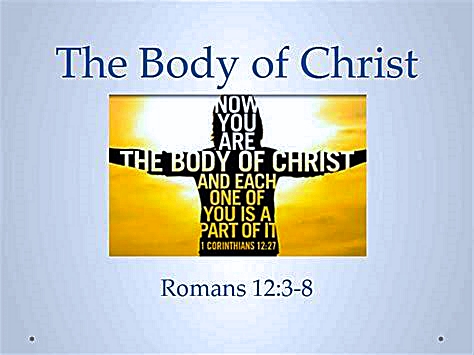

Body Ministry – BT13: “THE READING” of 1 Timothy 4:13 Paul tells Timothy to focus on isn’t all Scripture
Please follow the BLOG Etiquette to stay on topic and pass the moderator’s check. Bold, underlined text below = future links to the BLOG pages.
In 1 Timothy 4:13 Paul says: “Until I come, I strongly urge you to ongoingly ‘move-toward to-hold/have to attend-to’ (a) the reading (b), the exhortation (c), the doctrine/teaching (d).” The 3 “the” definite articles imply these are SPECIFIC congregational practices that Timothy would be familiar with, which Paul would take back control of when he arrived. Notice there are no conjunctions! I believe they are not separate items in a list as the conjunction de would indicate but all related to each other as kai would have conveyed, but Paul keeps it un-cluttered. We know that Paul loves to leave words out, which can cause confusion (e.g., Galatians 5:22-23)! <Notes> a) prosecho: ‘hold toward,’ set and keep a course toward, b) ana + gnosis = again knowing of gnosis information, c) paraklesis: or from Church history: invocation/summoning of the Parakletos Holy Spirit, the alongside-teacher/counselor, d) didaskalia.
THE READING in the immediate context of everything else Paul has written to his evangelist-in-training Timothy about, has absolutely nothing to do with “the reading” of the books of Moses (a) because in the other single place that Paul uses this term in 2 Corinthians 3:14 says that “the reading of Moses” or “old covenant” still brings a veil of darkness that still hides God’s glory and hardens the hearts of the hearers “to this very day!” That was the practice of Jewish synagogue leaders (b), not Christians! Paul spoke much about keeping “teachers of the Law” out of the Church! <Notes> a) Torah Law of conditional-favor, aka old covenant, b) Acts 13:15.
It’s possible Paul was simply referring to the “sound teaching” (see below) he often wrote Timothy about to convey to others, such as “follow the pattern of the sound logos messages that you have already heard/listened-to-understand (a) from me” (b), but notice Paul doesn’t mention writings! This actually may be the case, since in Acts 15:31 a letter from the Jerusalem church to the Gentiles was also read (c) to the congregation and they rejoiced because of its encouragement (d), the same word for “the exhortation” in 1 Timothy 4:13 above. So, both Acts 15:31 and Paul speak of “reading” and “encouragement/exhortation” together. We also know that many letters of Paul’s have been lost! Therefore, Timothy’s “reading” could indeed simply be the things Paul wrote to him or left with him. Well, regardless Paul instructs Timothy to do this UNTIL Paul arrives. <Notes> a) akouo, b) 2 Timothy 1:13, c) ana + ginosko: to experientially know thru reading, d) paraklesis.
However it’s much more likely that Paul was referring to a collection of Messianic prophetic passages from the OT scriptures that Paul and Barnabas (a) often quoted from to convert Jews to Christ, just as Timothy was converted by! That’s because we know from 2 Timothy 3:14-16, that these were the “sacred writings, that is, the ones able to make you wise for salvation through trusting-relying-faith (b) in Christ Jesus” that Paul reminded Timothy that he had “learned from childhood.” In context, these are actually the ‘every of a certain ‘portion of’ (c) scripture that [is] God-breathed and/thus profitable for teaching” – see Logos Word of God – BT7. We also know from early Church writings that this list of prophetic “oracles/utterances of God” (d) existed in the predominantly Jewish Church to continue to encourage converts to stick with Christ and not be tempted by “the teachers of the Law,” which is a theme throughout Paul and Barnabas’ teaching since they travelled as an evangelistic team and would sound very much like each other. <Notes> a) likely the author of the book of Hebrews, b) pistis: relational conviction of trusting reliance, c) pas is often translated this way instead of as ‘the whole/entirety of’, d) Acts 7:38; Hebrews 5:12; 1 Peter 4:11.
It’s absolutely shameful that 30 bible translators (a) have actually inserted the words “of scripture” and one bible inserted the “Word of God” (b) at the end of the “Until I ‘come from one place to this place,’ [I strongly urge you to] presently/ongoingly ‘hold attention toward’ the reading” phrase in 1 Timothy 4:13. They based this on pure conjecture, and often with no footnoting to justify their decision! This is abhorrent, especially when nothing in the immediate context would lead you to do this as we’ve clearly seen above and will see below! Can you see how “winds of doctrine” get started in the Church! Thank God 30 translations did NOT create such a crime (c)!
<Notes> a) including: AMP, CJB, CEV, ERV, EHV, ESV, ESVUK, EXB, GW, GNT, ICB, ISV, TLB, MSG, MOUNCE, NOG, NASB1995, NCV, NET, NIRV, NIV, NIVUK, NLT, NRSVA, NRSVACE, NRSVCE, NRSVUE, RSV, TLV, VOICE, b) NLV, c) KJ21, ASV, AMPC, BRG, CSB, CEB, DARBY, DLNT, DRA, GNV, HCSB, PHILLIPS, JUB, KJV, AKJV, LEB, MEV, NABRE, NASB, NCB, NKJV, NLV, NMB, NTE, OJB, RGT, WEB, WE, WYC, YLT.
The context of 1 Timothy 4:13 actually proves that “THE READING of all scripture” is absolutely NOT what’s in mind! We’ve already seen some of this! From 1 Timothy 4:3, the “logos message (a) of God” and the “prayer of thanksgiving” that makes “everything God has created, which is good” now “ongoingly holy (b)” has absolutely nothing to do with the OT Law! It was Jewish “teachers of the Law” that were “requiring abstinence from foods that God has created” (c)! But Paul is telling Jewish-Christians otherwise: They should be “received with thanksgiving by those who have trusting-relying-faith and/coupled have already, with ongoing results, genuinely, experientially, relationally epiginosko knew The Truth” (c). But “we have our hope set on the living God, who is the Savior (Jesus) of all (d) people – particularly those belonging to trusting-relying-faith. Command and teach these things” (e). Can you see what Paul is telling Timothy to relay UNTIL he arrives? This is absolutely not the food Laws of the OT, which there are many!
<Notes> a) logos in the NT in all but just a few cases refers to Jesus Christ or His gospel message, b) hagios: sanctified, consecrated, separated, dedicated, made ceremonially ‘clean’ or pure, c) 1 Timothy 4:3, d) pas: again ‘every of a kind,’ as is clear by the qualifying adverbial phrase following, e) 1 Timothy 4:10-11.
We also know THE READING does have something to do with Timothy’s grace-gift of preaching the gospel (a) that he should “practice, be immersed in” (b), and that he is to “carefully watch for himself and his teaching, persist in” (c). This absolutely cannot be ‘the whole/entirety of’ OT scripture, because Paul tells Timothy that “by so doing you will save both yourself and your hearers” (c). The OT Scripture won’t save anybody, certainly not the Torah Law of conditional-favor that makes up 97.4% of it – see Logos Word of God – BT5a, no matter how much you read it! We can’t forget: “For if that first [OT] covenant had been not memphomai faulted-blameworthy-rejectable-condemnable, there would have been no occasion to look for a second [New Covenant]” (d) and “For on the one hand, a former [OT] commandment is set aside because of its weakness and uselessness – for the Law made nothing perfect – but on the other hand, a better [NT] hope is introduced, through which we draw near to God” (e). <Notes> a) 1 Timothy 4:14, b) v. 15, c) v. 16, d) Hebrews 8:7, e) Hebrews 7:18-19.
We also know from Paul’s writings that “The Truth” (a) that these Christians “have already genuinely, experientially, relationally epiginosko known” sure isn’t gnosis info-knowledge about anything, not even OT scripture, but actually is Jesus Christ (b) and this is the “logos message of The Truth of God of/belonging-to the Lord (c). “The logos message of The Truth” that Timothy was to be devoted to “preach, teach, be immersed in, and persist in” is that which will ALONE “save him and his hearers,” thus certainly not the ‘whole/entirety of’ the OT scriptures and certainly not the Torah Law of conditional-favor that makes up 97.4% of it – see Logos Word of God – BT5a! Then why would Paul tell Timothy to then “devote himself to THE READING” (d) of “the [OT] scriptures” as so many translations have erroneously inserted? As we’ve seen Paul already had told Timothy what to be devoted to! How could “READING the Law of the scriptures,” the very ones the teachers were using to enforce food laws, be “The Truth” that will “save both yourself and your hearers?” <Notes> a) 1 Timothy 4:3, b) Ephesians 4:21; Titus 1:1; 2 Corinthians 11:10, cf. John 14:6, c) Acts 8:25, 15:7; 1 Corinthians 1:17; Galatians 2:14; Ephesians 1:13; Colossians 1:5, e) 1 Timothy 4:13.
The “THE READING of [all] scripture” translators also ignore the context of Paul’s writings concerning “pas: all of a kind/class/category of scripture,” particularly 2 Timothy 3:16 – see Logos Word of God – BT7. They believe that pas means “the whole/entirety of scripture . . . is profitable for teaching,” but this doesn’t fit any of Paul’s use of pas and it seriously violates everything Paul says about the Law and teachers of the Law in the Church! They believe Paul is including the Torah Law of conditional-favor based on obedience to 613 commandments, which are strewn throughout most of OT scriptures, making for 97.4% of the verses, but concentrated in the 5 books of Moses.
This logic seriously violates 2 Corinthians 3:14-18 where Paul criticizes people for listening to the Jewish teachers of the Law who continue to press Christians to “read Moses” or the old covenant. Paul says “to this very day,” it causes the hearer’s hearts and minds to be hardened and blocked from seeing God’s glory that is alone in the face of Jesus Christ. Do you want this to happen to you? The way to metamorphic transformation is to turn your face, heart, and mind (Jews used these interchangeably) away from Moses to the Lord. As we fix/gaze our wide-open eyes on Jesus, then this “cocoon to butterfly” change can happen ONLY by the Spirit, who is the Lord! Paul’s argument is that this will never come from reading the Torah Law of conditional-favor. In fact, the exact opposite will happen, for “the enabling-power of sin is the Law” (a) because the “Law came in [time] to increase the ‘falling-away-trespass” (b). It’s called “Law of sin and/coupled death” (c) for that very reason! <Notes> a) 1 Corinthians 15:56, b) Romans 5:20, c) Romans 8:2.
Reflection:
As Christian musicians, do we really want to keep taking verses out of context and ignoring their specific vocabulary from the original languages to prove our “pet doctrine” from our favorite bible? Do we want to continue reading from the entire OT scripture? Exegesis is getting the meaning from the text to build our doctrine, not reading into the text our traditions to interpret the text to support them! 1 Timothy 4:13 “public readings” in predominantly Jewish-Christian church gatherings were once again likely the ‘portions of’ the OT scripture that are prophetic discussing the Messiah, His gospel logos message for salvation through trusting-relying-faith in Christ within the completely-different-in-kind New Covenant. This is the same 300-600 verses that the early Church used to convert Jews, which the NT writers use liberally, especially Paul and Barnabas. This “reading” would never include the 5 books of Moses or old covenant, for much is written to prohibit this – see Logos Word of God – BT8. It’s possible that Paul is asking Timothy to read portions of his “sound-doctrine/teaching” that he has already communicated to Timothy, but again much of this is based on Paul building arguments from these select prophetic verses.
Prayer:
Lord, thank You for keeping the Law out of our lives, because we died to the Law when we were water-baptized into Your death. I pray that You will free other deceived Christians who still think that the ‘milk’ that is the scriptures – which “imprisoned everything under sin,” that was simply designed to bring the “child-like” Jewish people to mature sonship through trusting-relying-faith in You as their Messiah –still applies to them, even when most of these Christians are Gentiles! Free them so they can move onto the ‘solid food’ of “discerning good and evil by the Holy Spirit” – see New Covenant Ways – BT16, which is the actual grace-gift “promise” You have for them – not reading old scripture with it rules and “shadows that are not the substance” or even ‘new scripture,’ as Catholic traditions erroneously named the New Testament writings. Free us from the traditions of men, so that You alone become our “One Teacher” by Your Holy Spirit.

Click on Pic
Spiritual Education, Body Ministry, early Church services did NOT read Old Testament Law or All Scripture, Paul didn’t permit reading of the Law, Bibles are wrong to insert words into the Text like Scripture, Timothy could have been reading Paul’s letters we don’t have to the congregation, Timothy was likely reading a collection of Messianic Prophecies the early Church used to convert Jews, Bibles are wrong to insert words into the Text like Scripture, The reading had to do with sound-teaching gospel of Christ and faith in Him, The reading is linked to summoning the Holy Spirit and instruction from Him, The reading was ONLY until Paul was able to be there personally




